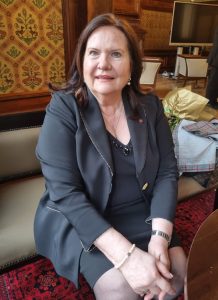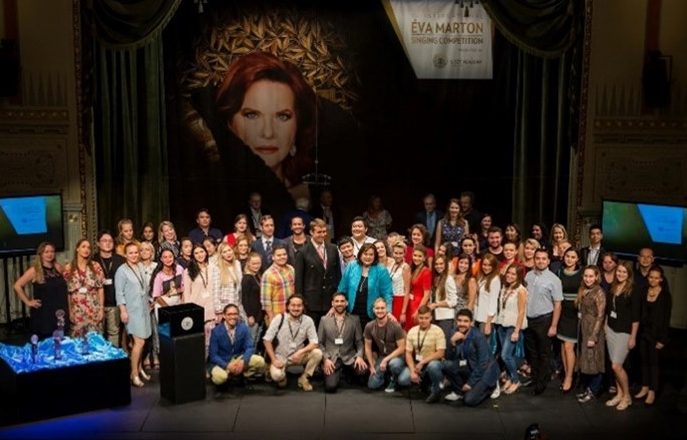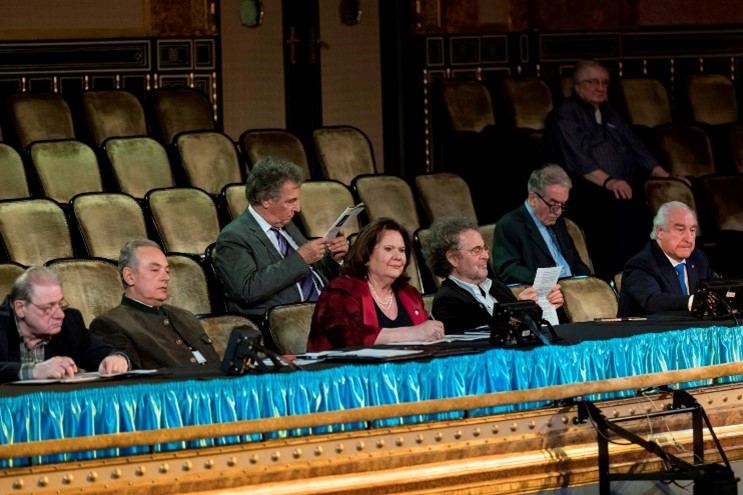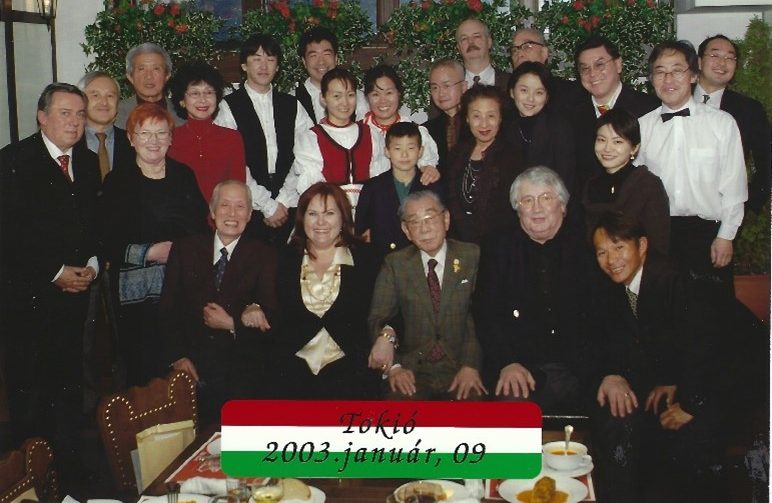We are the Lonely Voice of Truth. Interview with Éva Marton
.jpg?v=638187086823721477)
Éva Marton is a Kossuth Prize-winning Hungarian opera singer and dramatic soprano, holder of the Order of St. Stephen of Hungary and the title of Artist of the Nation. In 2017, Forbes named her the 5th most influential Hungarian woman in culture. She is the most awarded artist in the Hungarian opera world. The below interview was created after the Friends of Hungary Foundation conference entitled “Decretum of our Hungarianness – our civilizational heritage,” held at the Károlyi-Csekonics Palace in Budapest on Monday.

Éva Marton. Photo: Hungary Today
You are a co-founder of the Friends of Hungary Foundation. As a busy artist who travels the world, what makes you want to get involved in the organization of a foundation that deals with our national minorities, the Hungarian diaspora?
I have never distanced myself from my homeland. Wherever I have performed in the world, I have always had the feeling that I am a kind of ambassador for our country, for Hungarian art. I never thought that I was working only for myself. It was an honor for me to be able to travel the world and say that I am Hungarian, that I represent Hungary, whether it is Japan, Brazil, or Australia.

“In questa reggia,” Éva Marton as Turandot in front of 4000 spectators at the New York MET, 1987
I am a permanent member of the Vienna State Opera and an Austrian chamber singer, which is a very great honor. I was particularly moved when I was asked a few days ago whether I would accept to become an honorary member of the Hungarian State Opera. I was happy to say yes, and when I did so, I told them – “thank you, I have finally arrived.” I have been living in Hungary again since 2005. I have returned to where I started from, but I have kept all the things I have experienced in my long career to pass on here at home.

Since September 2014, the Éva Marton International Singing Competition has been held every two years at the Liszt Academy and the Hungarian State Opera House. Éva Marton in the ring of competitors.
Was there an idea that struck you at the conference discussing the Golden Bull of 1222 that you said, “yes, we should develop this further”?
The Golden Bull itself. We have lived in the Carpathian Basin for more than a thousand years. The Golden Bull has perhaps never been as relevant as it is today. Its value, its sense of justice, which has struck me, or the fact that yes, we have rights, regardless of the fact that Hungary is not big, but it is ours, we live here, we have the right to cultivate our own language and our own art. The Golden Bull symbolizes the truth and the need to say it because no one else in Europe and the world at large is saying it except us. Those who disagree with us – unless we ask them to – should not interfere in our lives, should not comment on our decisions, and should not seek to influence them.

Jury of the 3rd Éva Marton International Singing Competition, Budapest, Liszt Academy, September 2018
It was also discussed at the conference how important it is for Hungary to find friends. You are a person who has seen the world, you have spoken to influential people to a wide range of audiences. Knowing what you know, how would you suggest we can make friends more effectively in the world?
Since September 2014, we have organized the Éva Marton International Singing Competition every two years. Thanks to our success, in 2019, we were admitted to the World Federation of International Music Competitions, the only one from Hungary at that time. This means that we have been accepted. The international music community has accepted the Music Academy itself, but they have also accepted my ideas. However, we are not simply inviting young talent to the competition, we are also presenting our country, showing Budapest, where we live, where we study. I spend a lot of time with them. I feel that friendships can be made not only at formal receptions but also at work, even extended to entertainment: we can go to an exhibition, we can go to a concert together.
You have to work for each other; you have to bring people together. For example, I took the foreign jury members of the international singing competition to the House of Music. They were amazed, they said that they had never seen anything like it, that a glass palace could be built in such a beautiful wooded setting. A Hungarian boy from Balassagyarmat played Rachmaninov on the piano in a way that is beyond words. In the end, tears sparkled in the eyes of our international guests. I then took them to the Gundel restaurant, where they also had a wonderful experience. I showed them how we live, how we have fun.
Where were these guests from?
From London, Barcelona, Moscow, Milan, even Mongolia, a truly international group. After the program, they said they had no idea we Hungarians were so sensitive and sophisticated. We are often thought of abroad as a simple people: goulash, peppers, Puszta (Hungarian planes), horses… Well, that is all behind us now. We, too, are sensitive to the beautiful and the good, we too, have high standards.

Guests of the Japanese-Hungarian Club, where Éva Marton gave a lecture on the musical life of Hungary, Tokyo, 9 January 2003.
What gives the impression to the international community that we are somehow an unsophisticated people?
Unfortunately, there are a good number of people, even in our ranks, who propagate this. These prejudices should be challenged with love, calmly, not by harshly hitting back with simplistic, crude, vulgar expressions, because that is what is expected of us by them. We should show with kindness who we are. To this end, the theater, opera, music, and the formative power of the other arts can be of great help, this is the task of art.
Via: Hungary Today - written by Dániel Deme ; Photo: Courtesy of Éva Marton, Hungary Today